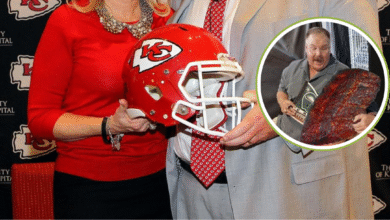One Direction and Simon Cowell – The Secret Contract of 2010
OPINION: This article may contain commentary which reflects the author's opinion.
In the summer of 2010, five teenage boys—Harry Styles, Zayn Malik, Liam Payne, Louis Tomlinson, and Niall Horan—stood on the precipice of fame. They had auditioned as solo acts on The X Factor UK, only to be grouped together by Simon Cowell, the show’s mastermind, into a boy band that would become One Direction. Their third-place finish that December was just the beginning. By 2015, they were a global phenomenon, selling over 70 million records and filling stadiums worldwide. But behind the meteoric rise was a moment that shaped their destiny: a secret contract signed in a London office, binding them to Cowell’s vision at a cost few could have imagined.
The meeting took place in late 2010, shortly after The X Factor finale. The boys, aged 16 to 18, were summoned to the offices of Syco Entertainment, Cowell’s label, in Kensington. They were nervous but exhilarated, still processing their newfound fame. Cowell, a shrewd businessman with a knack for spotting talent, saw in them something rare—a blend of charisma, chemistry, and marketability that could dominate the pop landscape. But to realize that potential, he needed control, and he needed it fast.
According to a former Syco employee who was present, the atmosphere in the meeting was tense. Cowell, flanked by lawyers and executives, presented the boys with a contract that promised stardom but demanded loyalty. The terms were daunting: a multi-album deal with Syco, exclusive rights to their music and image, and a grueling schedule of tours, appearances, and recordings. In exchange, they’d receive a percentage of profits—significant, but far less than industry norms for established acts. The contract also included clauses limiting their creative input and personal freedoms, from songwriting to public statements.
The boys, barely out of high school, were unprepared. Their parents, present but out of their depth, urged caution, but Cowell’s charisma was persuasive. “This is your shot,” he told them, his voice a mix of encouragement and authority. “Sign this, and you’ll be bigger than The Beatles.” For Harry, the dreamer, it was a vision of glory. For Zayn, the skeptic, it felt like a trap. Liam, Louis, and Niall wavered, torn between ambition and unease.
The employee recalled a pivotal moment when Zayn questioned the contract’s restrictions. “What if we want to write our own songs?” he asked. Cowell’s response was blunt: “You’re not ready for that. Trust me to make you stars.” The implication was clear—sign, or risk being shelved. With the weight of their families’ expectations and the allure of fame, they signed, one by one, their signatures sealing a pact that would define their lives.
The contract’s impact was immediate. One Direction’s debut single, “What Makes You Beautiful,” released in 2011, topped charts worldwide. Albums followed at a relentless pace, each a commercial juggernaut. But the cost was steep. The boys worked 18-hour days, often sleeping on tour buses, their personal lives scrutinized by tabloids. Creative control remained with Syco’s team, leaving them little say in their music. Zayn, in particular, chafed under the constraints, his frustration culminating in his 2015 exit.
The secret contract also sowed seeds of resentment. According to the employee, the boys later learned that Cowell’s promises of equal partnership were hollow. Profits were heavily skewed toward Syco, and the band’s share was diluted by management fees and expenses. By 2013, whispers of legal battles surfaced, though none went public. Louis, the group’s unofficial leader, reportedly confronted Cowell during a heated meeting, demanding more autonomy. Cowell acquiesced slightly, allowing some songwriting credits, but the power dynamic never shifted.
The contract’s legacy is complex. It launched One Direction to heights few bands achieve, but it also bound them to a machine that prioritized profit over well-being. Zayn’s departure, the band’s 2016 hiatus, and Liam’s tragic death in 2024 underscored the toll of those early years. Cowell, in rare reflective moments, has called One Direction his proudest creation, but he’s never addressed the contract’s specifics.
For the boys, that day in 2010 was a Faustian bargain. They gained the world but lost pieces of themselves. The contract, hidden from public view, remains a testament to their sacrifice—a reminder that even the brightest stars are forged in shadows.



